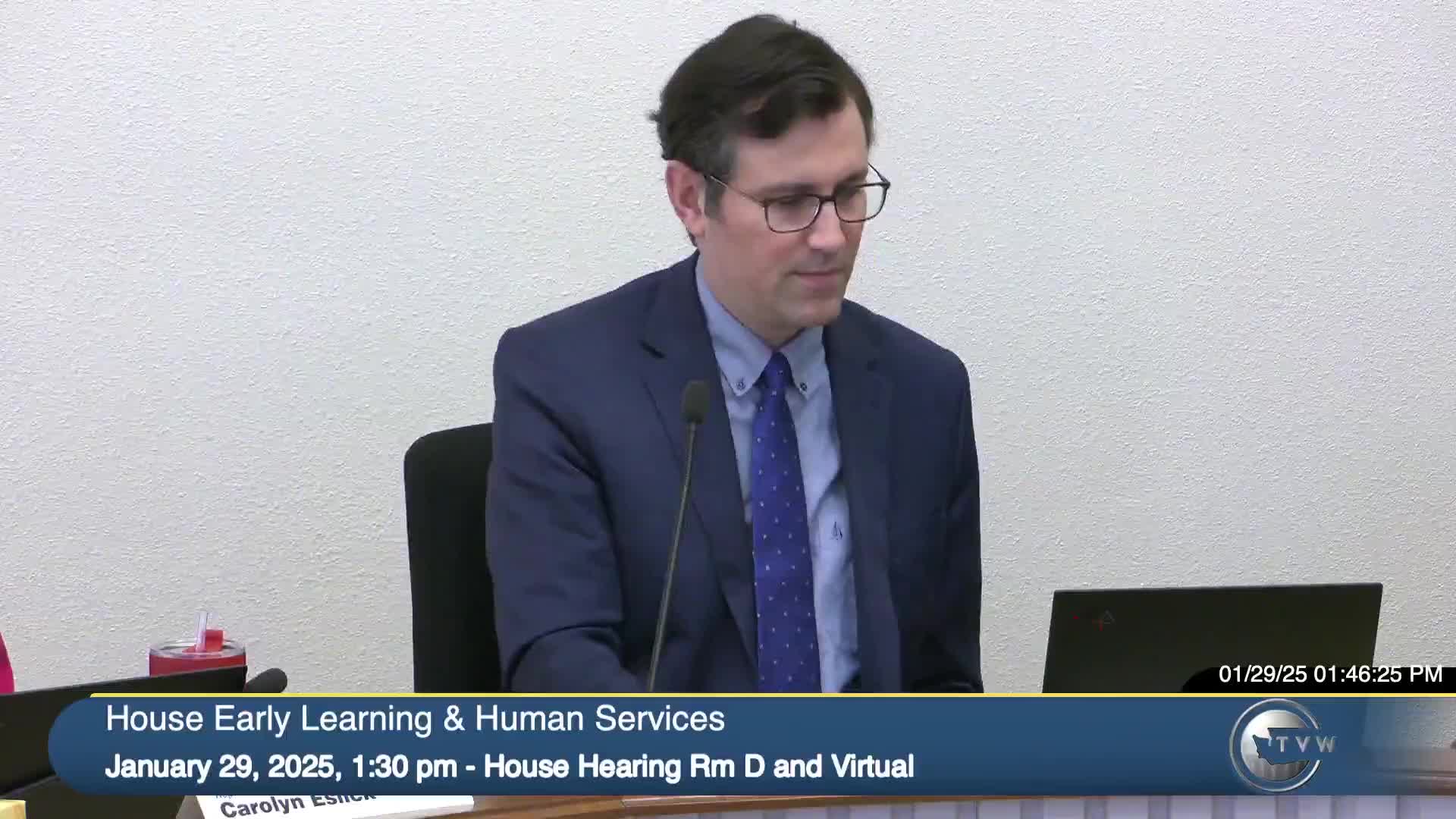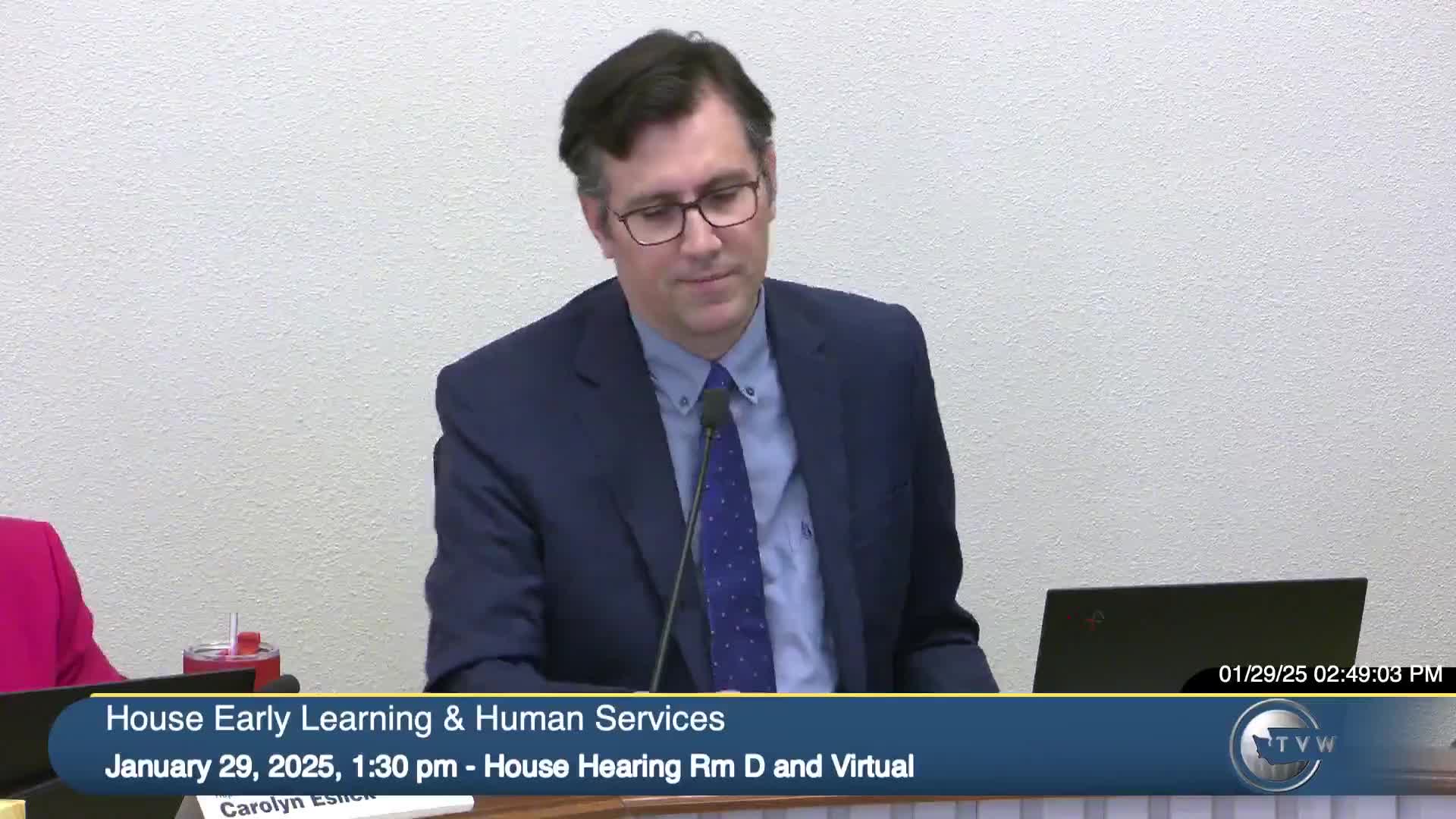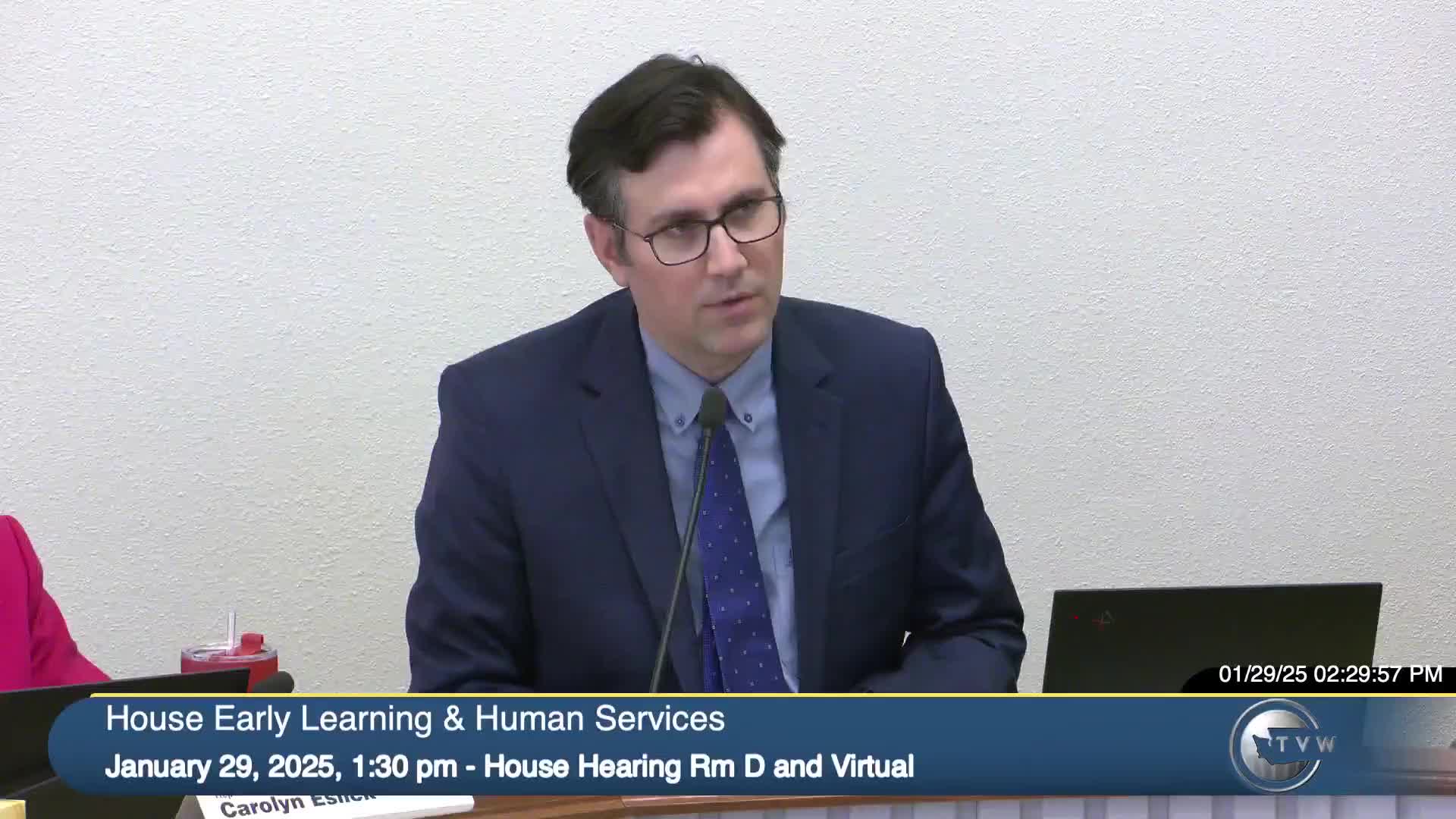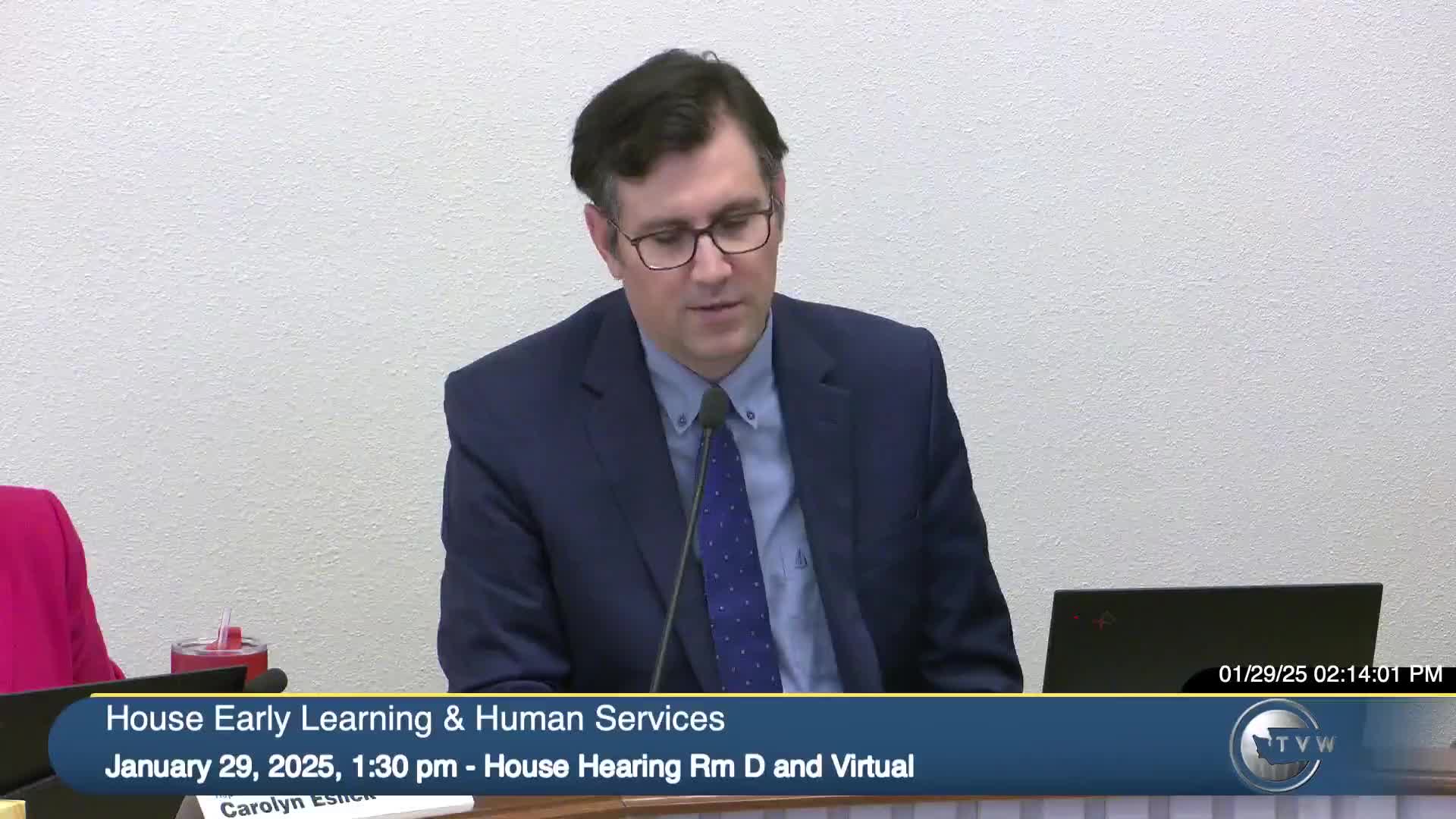Article not found
This article is no longer available. But don't worry—we've gathered other articles that discuss the same topic.

Debate over contracting and scope of community inclusion services divides families and counties

Committee hears bill to prioritize certain groups for developmental-disability waivers

Parents of medically complex minors seek right to be paid caregivers under proposed waiver change

Lawmakers consider removing statutory reference to Community Protection Program amid complaints it traps participants

